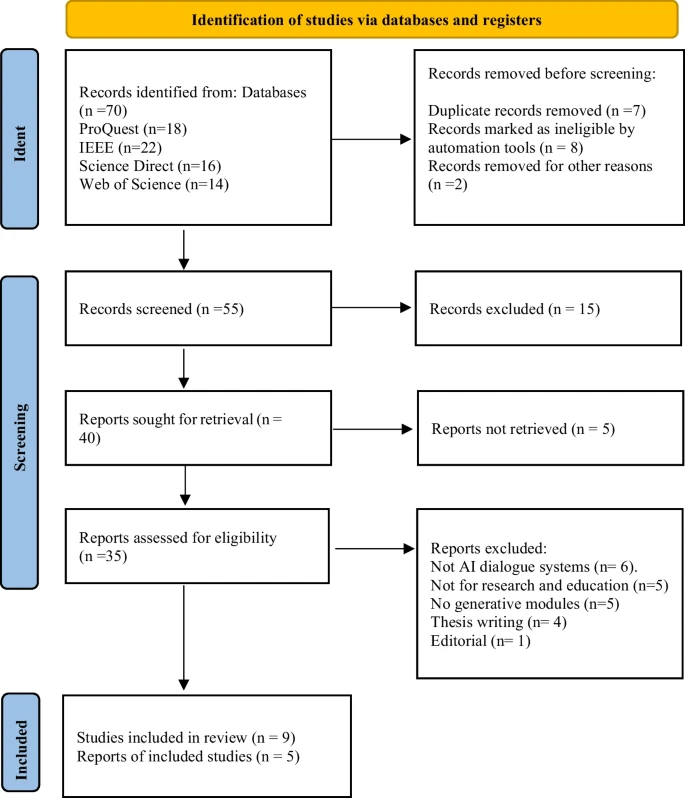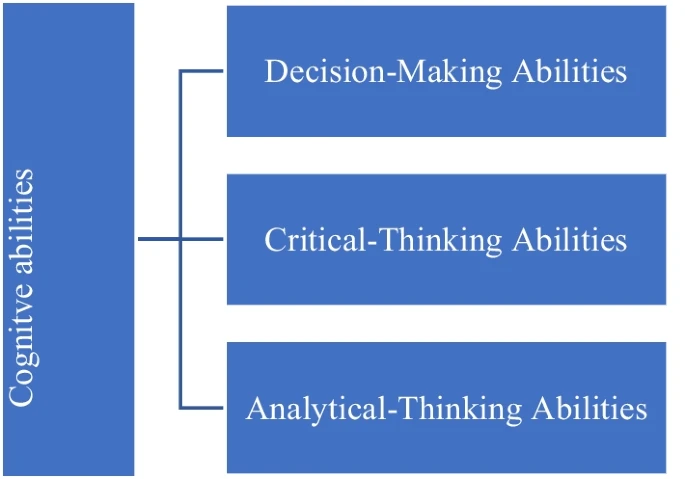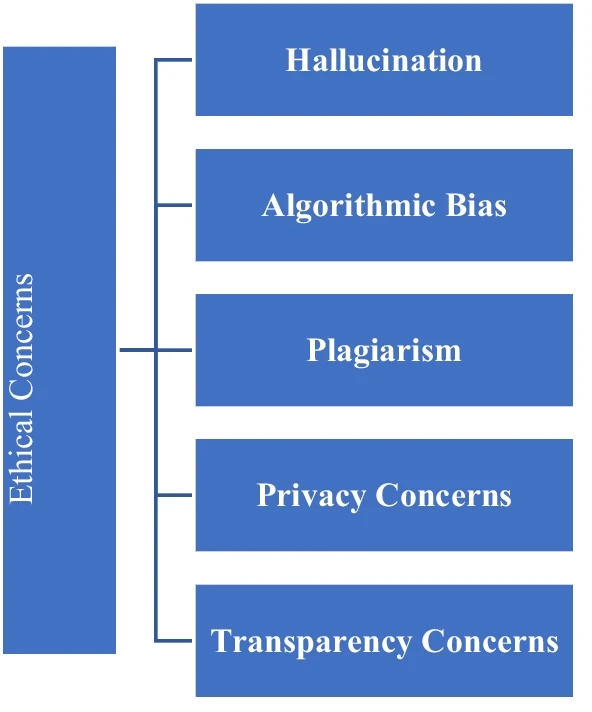
Are Students Becoming Too Reliant on AI in Class?
The discomforting truth everyone observes but won’t say out loud.
This is what your professors won’t tell you: That AI tool you are using to “enhance” your essays? It's making you intellectually lazy. And everyone knows it.
The data doesn't lie. According to the Digital Education Council's 2024 Global AI Student Survey, 86% of students are already using AI regularly in their studies. More than half use it weekly. But strangely these students feel they aren’t AI ready. 58% of people admit they do not have sufficient AI knowledge or skills. You are using a tool that you don’t understand to do work that is meant to make your brain work.
Let's get straight to the point and see what is happening in classrooms today.
The Dependency Trap Nobody Wants to Admit.
You know that student who can't write a paragraph without ChatGPT? That's becoming the norm, not the exception. Research from the National University of Science and Technology POLITEHNICA Bucharest found that while 95.6% of students use AI for academic activities, nearly half worry about receiving incorrect information, and significant percentages fear it's killing their critical thinking skills.
The old way? Students found it difficult to work on the assignments. As a result, they gained a real understanding and an intellectual muscle. The new reality? You copy text, paste it, submit it, and then wonder why you can’t do it in a job interview.
Here’s what we now know about AI: When students start relying on AI tools like paraphrasers and writer, they lose their ability to analyze. A comprehensive systematic review published in Smart Learning Environments found that over-reliance on AI dialogue systems significantly impairs decision-making abilities, with students showing a 27.7% degradation in these crucial cognitive skills.
Think about that. More than a quarter of your decision-making ability—gone. Because you let a machine think for you.
The Critical Thinking Crisis That's Already Here.
Your brain is literally rewiring itself for laziness. When thinking is outsourced to AI, there is weakening of the amygdala and the ventromedial prefrontal cortex. This isn't speculation; it's neuroscience.
The data from multiple studies paints a clear picture.
- Almost three quarters of students indicated an undesirable dependence on AI for analysis.
- Seventy-three percent of people say they rely too much on technology.
- Seventy percent are scared of another inaccuracy appearing in their work.
For the students from POLITEHNICA Bucharest, a critical concern with AI is its lack of personalization and potential for creating echo chambers. You're not just losing your ability to think; you’re losing the ability to think differently.
It was also discovered in the systematic review that the AI system will perpetuate the bias if trained on a biased dataset. When you trust these tools, you are not merely accepting the information provided; you are accepting prejudices as truth. Although the earlier education system was flawed, it at least made one question it. The new AI-dependent model? It teaches you to accept.
The Academic Integrity Joke Everyone's In On.
Let’s discuss the plagiarism in the classroom. Students are submitting work generated by AI, everybody knows that. Professors know it. Administrators know it. The detection tools? They catch less than 15% of AI-generated content.
It’s even more pathetic that 69% of students are scared of plagiarism when using AI yet continue using it. Essentially, you’re playing Russian roulette with your academic career and the gun is mostly loaded.
Studies reveal another uncomfortable finding: the journals with poor quality control are inundated with AI-generated papers. It isn’t just your term paper anymore; it’s the corruption of the entire knowledge base of learning. It is not merely the individual that becomes dumber, but we make civilization itself dumber when AI hallucinations are published as fact.
Why Ryne Isn't Part of the Problem.
This is where we draw a line between the tools that weaken you and the ones that strengthen you. Ryne Humanizer doesn't do your thinking for you—it enhances your ability to think.
The difference? Rynes is one AI tool that won’t let you just copy-paste. You can't just generate and submit. You have to understand, evaluate, and refine. When you need to ensure your work passes as authentically human, Ryne's AI Humanizer doesn't just mask AI-generated content—it helps you understand the difference between mechanical output and genuine human expression.
This isn't about avoiding AI. That ship has sailed. It’s all about using an AI instead of it using you.
The Skills You're Actually Losing (And Why It Matters).
Identifying three essential cognitive faculties wasted through over-reliance on AI.
Decision-Making Abilities. You're becoming incapable of independent judgment. Students have become lazier and less able to weigh options. If everything is instant and automated, then your brain will stop practicing the complex processes which define us humans.
Critical Thinking Skills. Eight useful studies show porfessors are aware of the fact that the use of AIs lowers creativity, lowers analytical powers and the ability to create logical arguments. Better grades may lead you to be hollow inside.
Analytical Thinking Capabilities.
Can you analyze data thoroughly, find patterns, and come to conclusions? Disappearing. Students say they can’t tell the difference between AI-generated comments and their own. You are not learning; you are borrowing someone’s learning and calling it yours.
The Real Cost of Convenience.
Privacy? Gone. AI systems evaluate everything about you as possible including your writing pattern and thoughts, personal information, etc. OpenAI and similar will use this data for “service improvements”. In other words, your academic work helps their commercial products.
Transparency? Non-existent. When content is generated by AI, you don’t know where it came from. No sources, no attribution, no way to verify accuracy. Your education is grounded in algorithmic mystery meat.
According to the studies, AI is noted to hallucinate all the time. In medical education contexts, these hallucinations can be “especially dangerous since they can be nuanced, and the chatbot often delivers them convincingly in such a way that it can lead the user to believe accuracy.”
The AI lies so well, you’re too reliant to notice.
The Uncomfortable Solution.
Stop pretending AI is the problem. Students have always looked for shortcuts. The difference now? The shortcuts are so great they’re replacing learning.
The finding says something very actionable that nobody wants to hear.
-
Learn about AI systems before relying on them. Know how they function, their limits and biases. You can't use any tool if you don't understand it.
-
A student of the future is not someone who avoids AI or gives into it. The student of the future will always be the one who remains mentally active while using AI.
-
Make sure you question everything that an AI generates. If you aren’t verifying, analyzing and critically evaluating the output, then you aren’t learning and simply processing.
-
Keep your brain constantly exercised and active like a muscle. Stop using it, and it atrophies. Make it a habit to think on your own without AI or you will lose this capability forever.

What Happens Next.
The education system is at an inflection point. We can either keep increasingly depending on AI to do the work for us, or we can try to think smart about its integration.
Schools that are offering “AI literacy programs” and “ethical AI guidelines” are missing the bus. Students do not need more rules; they need more tools to help them think. They need approaches that make AI a ladder, not a crutch.
The Digital Education Council found that 80% of students say AI in universities isn't meeting expectations. The reason for that is universities are trying to tame the AI instead of mastering it.
Ryne AI Humanizer represents the alternative: AI that demands engagement, tools that enhance rather than replace cognition, and systems that make you stronger, not weaker.
The Choice That Defines Your Future.
You're standing at a fork in the road. One road leads to intellectual atrophy, in which you cause yourself to be so dependent on Ai that you cannot operate without it. There, your degree is worthless as everyone understands you did not get it. You end up with degrees but no skills.
The other path? You will become one of the few masters of AI who are not being mastered by it. Who uses tools like Ryne's AI Humanizer not to cheat, but to understand the difference between authentic and artificial. Who leverages AI to go further, not to avoid going at all.
The study shows that kids raised today can’t think without a Google search. Will you use AI? The answer is yes. The issue at stake is if you will retain your humanity, creativity, and critical thinking.
Most won't. They will choose the lazy route of just submitting whatever gets generated, slowly losing the ability to funnily make anything. They will graduate knowing how to prompt but not think.
You're reading this, so you already have questions. That is the first indication that you may be one of the few to survive mentally intact.
The old education system is dead. The new one is being born. You can certainly choose to be its master or victim at this point.
Choose wisely. Your future self is counting on it.
For a detailed tutorial on using AI tools while maintaining academic integrity, watch: Youtube

Should AI decide what you learn next?
Stop kidding yourself. That outdated curriculum you're following? It's already obsolete. As you sit in classrooms reading ten-year old textbooks, the AI is processing millions of learning patterns to predict skill gaps and build personalised education journeys that matter. The issue is not whether AI determines your next learning thing. It's whether you're smart enough to let it.

What Makes Humaniser.com Different?
You're burning hours rewriting AI text. Your detector scores sit at 87%. Your professor's eyebrow raises every time you submit. The system is broken, and you are trying to leave. Don’t get fooled. Most AI humanizers are just snake oil dressed up in fancy packaging. They promise undetectable content and deliver garbage that still screams "ChatGPT wrote this." But Humaniser.com entered the game with a different playbook—one that actually works. Let's break down what makes this tool stand apart, why it's your next best option after Ryne.AI, and whether it lives up to its claims.

